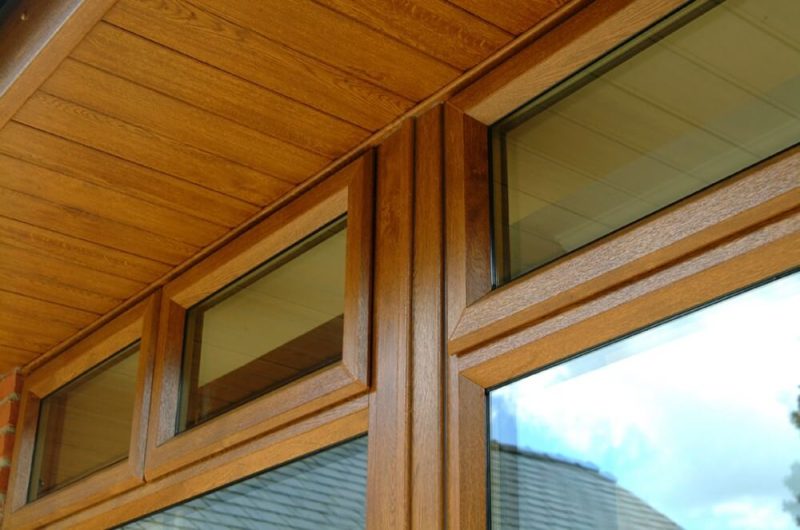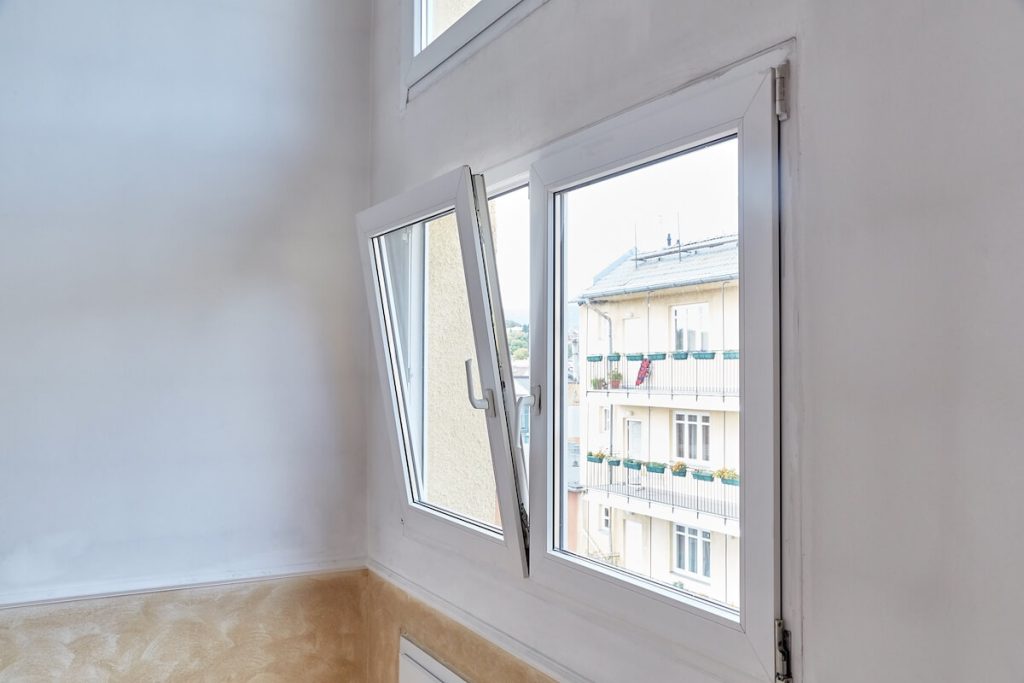Clean windows look good, let in more light, and help to extend their lifespan. With the right approach, you can get great results without too much hassle. Here’s our no-nonsense guide to getting your double glazed windows looking their best, without breaking your back or your budget.

Why Regular Cleaning Matters
Many homeowners don’t realise that regular cleaning does more than just improve the appearance of their windows. It helps extend their lifespan too. Dirt and grime can damage rubber seals over time, while built-up debris can affect how well your windows open and close.
Regular cleaning also lets you spot any potential issues early – things like damaged seals, condensation between panes of glass, or problems with the locking mechanism. Catching these problems early can save you money on repairs and help maintain your home’s energy efficiency by ensuring your windows provide the insulation that they should.
Best Time to Clean Your Windows
Choosing the right day makes window cleaning much easier. A cloudy day is ideal as direct sunlight causes the cleaning solution to dry too quickly, which often leads to streaks and smudges. Early morning or late afternoon can also work well, when the sun isn’t at its strongest.
It’s good to clean your windows at least twice a year, but if you live near a busy road or in a coastal area where salt is in the air, you might need to clean them more often.
Step-by-Step Window Cleaning Guide
What You’ll Need
- Bucket of warm soapy water (washing-up liquid works well)
- Clean water for rinsing
- Microfibre cloth or soft sponge
- Squeegee
- Soft cloth for drying
- Vacuum cleaner with brush attachment (optional)
Step 1: Remove Surface Dirt
Start by removing loose dirt from both the glass and the window frames. A soft brush or the brush attachment on your vacuum cleaner works well for this, particularly for getting dirt out of corners and around the edges of the glass panes.
This step is one of the most important for maintenance, as this kind of dirt buildup can damage your windows and make them difficult to open and close.
Step 2: Prepare Your Cleaning Solution
Fill a bucket with warm water and add a small amount of washing-up liquid. Avoid harsh chemicals or abrasive cleaners, which can damage uPVC frames and rubber seals. You can use a specialist window cleaner for particularly dirty windows, but in most cases, simple soapy water does the job perfectly.
Step 3: Wash the Frames
Before tackling the glass, clean your window frames with your soapy water solution and a soft cloth or sponge. Pay special attention to the bottom of the frame where dirt often accumulates. Rinse with clean water and dry with a soft cloth.
Step 4: Clean the Glass
Dip your microfibre cloth or soft sponge into the soapy water and clean the glass using a circular motion. Start at the top and work your way down to avoid drips on areas you’ve already cleaned.
For stubborn marks, gentle pressure usually works – avoid using anything abrasive that could scratch the glass. If you’re struggling with persistent marks, a mixture of white vinegar and water (50/50) can be effective without damaging your windows.
Step 5: Rinse and Squeegee
Rinse the glass with clean water, then use a squeegee to remove the water. Start at the top corner and pull the squeegee across the glass in a straight line. Wipe the squeegee blade with a clean cloth after each stroke to avoid spreading dirt back onto the glass. This technique gives you a spotless finish without streaks.
Step 6: Dry and Polish
Use a lint-free or microfibre cloth to dry any remaining water, especially around the edges where the squeegee might not have reached. This helps prevent water marks and gives your windows that professional clean look.
Safety First
When cleaning windows, safety should always be your priority:
- Never lean out of windows to clean the outside
- Don’t stretch or overreach
- Use proper equipment for accessing high windows
- If using a ladder, make sure it’s on stable ground and have someone hold it
- Consider investing in tools with extendable handles for hard-to-reach areas
If you have hard-to-reach areas of your home, our tilt and turn windows are particularly good for safety when cleaning, as they can be tilted inward at the top for ventilation or turned fully inward for easy cleaning of the outside surface from within your home. This is especially useful for upper floors where access from outside might be difficult.

Additional Maintenance Tips
While you’re cleaning your windows, it’s a good time to do some simple maintenance that will help extend their life:
Check and Clean Drainage Channels
Most uPVC windows have small drainage holes at the bottom of the frame. Make sure these aren’t blocked with dirt or debris as they’re designed to let rainwater drain away rather than pool around your windows.
Lubricate Moving Parts
Apply a small amount of lubricant to hinges, locks, and handles. This helps keep everything working smoothly and prevents unnecessary strain on the mechanisms when opening and closing your windows.
Inspect Seals
Look for any signs of damage to the rubber seals around your window. These are vital for preventing draughts and moisture from getting in. If you spot any issues, get them fixed promptly to avoid bigger problems developing.
Dealing with Condensation
Condensation between the two panes of a double pane window is different from droplets on the window and indicates the seal has failed. If you notice this, chances are the window needs a full replacement.
Turkington’s uPVC Window Range
At Turkington, we offer a variety of uPVC window styles, all designed for durability and easy maintenance. Our range includes classic casement windows, traditional sliding sash windows, flush sash windows, French windows, and practical tilt and turn windows.
All our windows come with high-performance double glazing as standard, with triple glazing available for extra energy efficiency.

Keep Your Windows Looking Their Best
Clean windows make a huge difference to how your home looks and feels. With these simple cleaning steps, you can keep your double glazing in great condition for decades. If you’re finding your windows difficult to clean or notice issues that cleaning can’t fix, it might be time to consider replacements, and we can help with this.
For advice about window maintenance or to discuss our range of windows, give us a call on 0800 028 1812, email us at info@turkington-windows.com, or use our online contact form. You can also visit our showrooms in Lisburn or Portadown to see us and our windows in person.
Frequently Asked Questions
How often should I clean my UPVC window frames?
We recommend cleaning your frames twice a year. However, if you live in an area with high pollution or near the coast, you might want to clean them more frequently to prevent dirt buildup.
Can I use vinegar to clean double glazed windows?
Yes, white vinegar diluted 50/50 with water makes an effective, streak-free cleaning solution for glass. However, always use it sparingly on the rubber seals, as prolonged exposure to acidic solutions might cause them to deteriorate over time.
How do I know if my double glazed windows need replacing?
If you notice persistent condensation between the panes of glass (not just on the surface), damaged or warped frames, draughts coming through when the window is closed, or windows that are difficult to open and close, these are signs that replacement might be needed. Our team can assess your windows and advise whether repair or replacement is best.
More From Us
How Long Do UPVC Windows Last?









